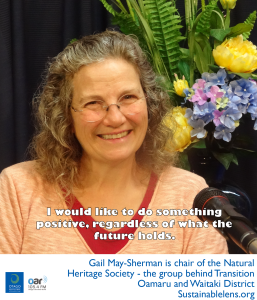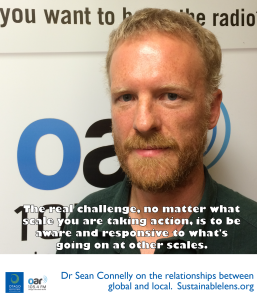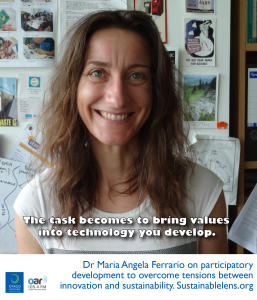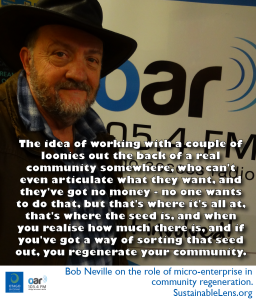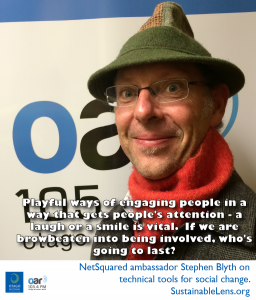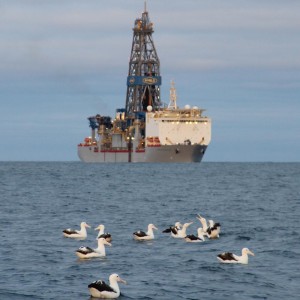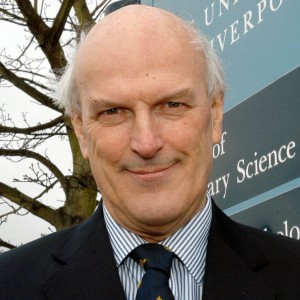Alyth Grant retired from an academic job teaching German and has launched into a retirement role with the Orokonui Ecosanctuary. She tells us that the sanctuary is about protecting an ecosystem, it’s not a zoo.
Talking points
It felt like this was my opportunity to give back to what I’d always loved doing
It felt to me like my opportunity to give back to the natural world of your life to the bush which I had laughed all those years. But it was also an opportunity to learn a lot
It’s very exciting this hands on stuff I just loved. And of course, the other huge benefit is you meet a whole new circle of friends who were doing the same thing and share the same passions.
(on the future of the sanctuary)  That’s a very big question, one would hope that it will continue. And I think one … that one of the most important things to happen is recruiting new volunteers, younger volunteers because we all are 10 years older than we were when we started and that’s why the educational side of the programme is vitally important.
I think the sustainability aspect comes…in we have an excellent education program most people know Tahu Mackenzie by now and she has (worked with) preschoolers who are already learning how to plant how to read how to look after the new trees… they learn about all aspects of the wildlife it or economic and it goes right through to high school students to programs that are linked in with their NCEA curricula and lean on to university students – ecology students in particular who are doing their own projects for for masters degrees and PhD degrees. Now, all of those young people right through are getting what I lacked in my childhood, that involvement with the outdoors, the learning what it takes to look after this beautiful world we live in, and New Zealand.
I think it’s when you begin to understand that it’s a whole ecosystem that we’re trying to look after. And and that’s what our Ecosanctuary really is about isn’t just a zoo, we have to tell people all the time because you can promise that they’re going to see this (animal).
(Do you have a go to definition of sustainability?) I don’t, I mean, I need the the dictionary meaning of the word, what it means for us individually is very different. I think it’s what we can do ourselves to the overall thing, whether it be getting involved as I’ve done and some sort of specific project aimed at trying to restore our environment to something better than it has become.
I’ve been a teacher all so many years, that it’s going to depend a lot on education, from childhood onwards through to the adults who perhaps didn’t know about it earlier on, like me, so that it’s an ongoing thing that we take it for granted that we have to look after our environment.
And as part of the education I think we need to become more politically aware, I think we fail our own society and not doing enough at school level to become good citizens to understand what it is to be a voting person, member of a community and informing ourselves of what the issues are for our community and for the world.
(superpower) The willingness to talk about it? I think as much as anything, Well, I guess it’s the background and teaching and communicating as well as the willingness to be involved physically and things I was brought up to be reasonably practical person. So I enjoy that combination, I think.
(motivation) Life is still interesting…what keeps me interested in life. I’m still learning stuff.
(miracle) Get rid of plastic,  I get angry every time I go to buy something and everything’s in plastic packaging. And while it’s lovely to think that we can do something ourselves about getting rid of plastic single use plastic bags, I think the bigger issue is a huge one. And it’s how do you persuade manufacturers to stop packaging like that, I mean, I can remember when you went to the hardware store, and they would weigh out some screws for you or count out some screws for you. But that doesn’t happen anymore because they want to hang everything on hooks.
(Advice) get out in the environment, do whatever you can, in whatever small way something that makes you feel good about yourself and about the world you live.


